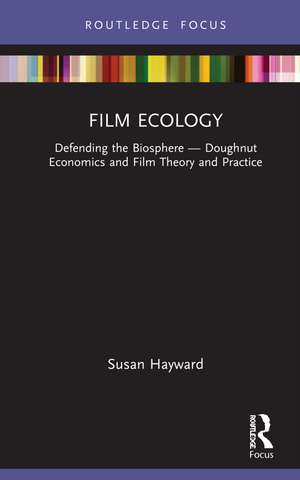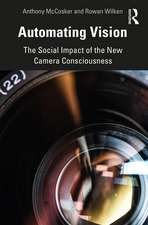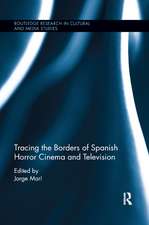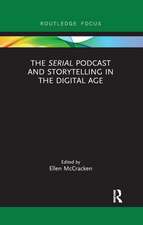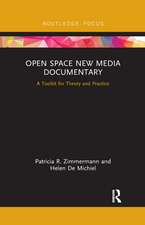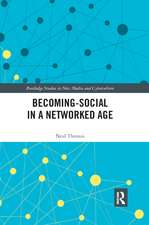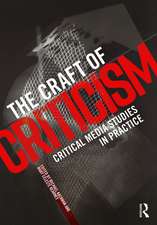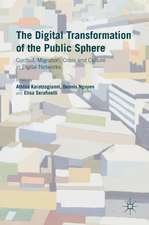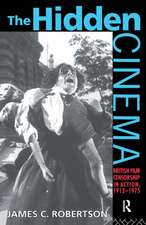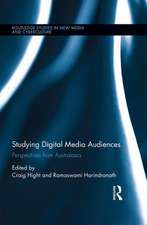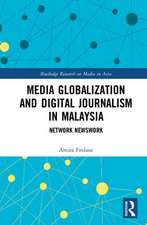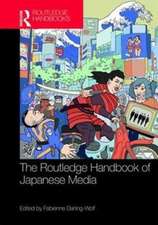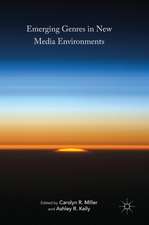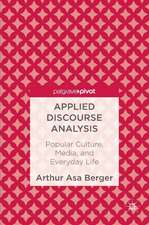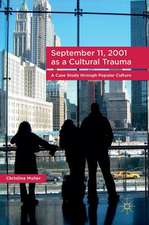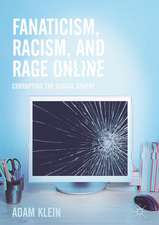Film Ecology: Defending the Biosphere — Doughnut Economics and Film Theory and Practice
Autor Susan Haywarden Limba Engleză Hardback – 24 mar 2020
This book attempts to answer the questions posed by T.J. Demos (in Against the Anthropocene, 2017): how do we find a way to address planetary harm and the issues it raises within the field of Film Studies? How do we construct a theoretical model that allows us to visualize the ecological transgressions brought about by the growth-model of capitalism which is heavily endorsed by mainstream narrative cinema? By turning to the model set out in Kate Raworth’s book Doughnut Economics (2017) and adapting its fundamental principles to a study of narrative cinema, Film Ecology proposes to show how, by using this model, we can usefully plot and investigate films according to criteria that are not genre/star/auteur-led, nor indeed embedded in anthropocentric theoretical models, but principles which are ecologically based. These arguments are brought to life with examples from mainstream narrative films such as The Giant (1956), Mildred Pierce (1945), Erin Brockovich (2000), Wall Street (1987), Hotel Rwanda (2004), and Missing Figures (2016).
This approach will inspire film practitioners, film theorists, critics and analysts, film students and film lovers alike to consider how they might integrate this Doughnut model into their thinking or work as part of their process.
Preț: 393.19 lei
Nou
Puncte Express: 590
Preț estimativ în valută:
75.25€ • 81.71$ • 63.21£
75.25€ • 81.71$ • 63.21£
Carte disponibilă
Livrare economică 01-15 aprilie
Livrare express 15-21 martie pentru 28.31 lei
Preluare comenzi: 021 569.72.76
Specificații
ISBN-13: 9780367265519
ISBN-10: 0367265516
Pagini: 124
Ilustrații: 30
Dimensiuni: 138 x 216 x 10 mm
Greutate: 0.34 kg
Ediția:1
Editura: Taylor & Francis
Colecția Routledge
Locul publicării:Oxford, United Kingdom
ISBN-10: 0367265516
Pagini: 124
Ilustrații: 30
Dimensiuni: 138 x 216 x 10 mm
Greutate: 0.34 kg
Ediția:1
Editura: Taylor & Francis
Colecția Routledge
Locul publicării:Oxford, United Kingdom
Public țintă
Postgraduate and UndergraduateCuprins
Introduction
Chapter One: Film and ecology, Doughnut Economics, and film theory
Chapter Two: Film and the Anthropocene: dirty Capitalism – Mildred Pierce (1945), Tulsa (1949), and Giant (1956)
Chapter Three: Where we are now and where we need to be: from Source and Sink to Take->Make->Use->Re-use – Erin Brockovich (2000), Wall Street (1987), and The Wolf of Wall Street (2013)
Chapter Four: A moral imperative to REVOLT: Hotel Rwanda (2004) and Caphernaüm (2018)
Chapter One: Film and ecology, Doughnut Economics, and film theory
Chapter Two: Film and the Anthropocene: dirty Capitalism – Mildred Pierce (1945), Tulsa (1949), and Giant (1956)
Chapter Three: Where we are now and where we need to be: from Source and Sink to Take->Make->Use->Re-use – Erin Brockovich (2000), Wall Street (1987), and The Wolf of Wall Street (2013)
Chapter Four: A moral imperative to REVOLT: Hotel Rwanda (2004) and Caphernaüm (2018)
Notă biografică
Susan Hayward is Emeritus Professor of Cinema Studies at Exeter University. She is the author of numerous books on French Cinema and Cinema Studies: The Key Concepts (now in its fifth edition).
Descriere
Using the Regenerative economic model - also known as Doughnut Economics - Susan Hayward offers a thought-provoking sketch for a renewed, tentatively revolutionary, approach to both film theory and film practice.
